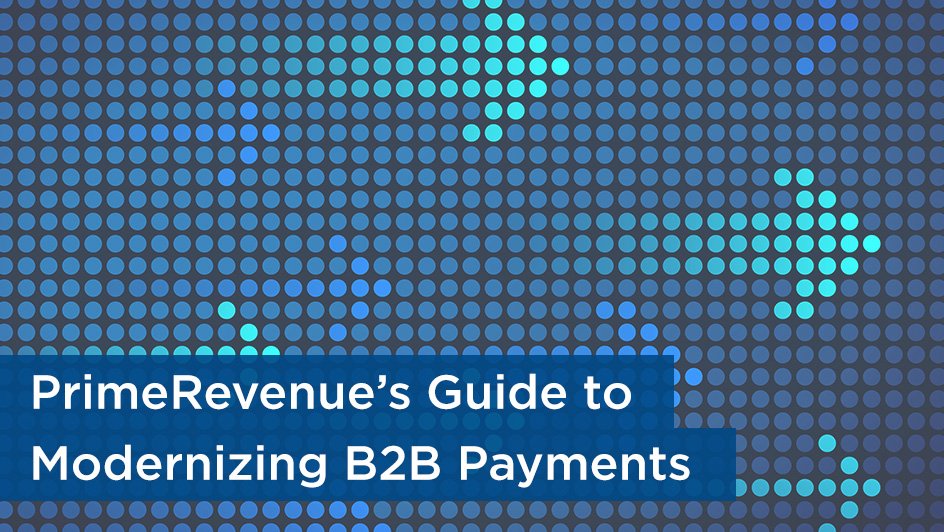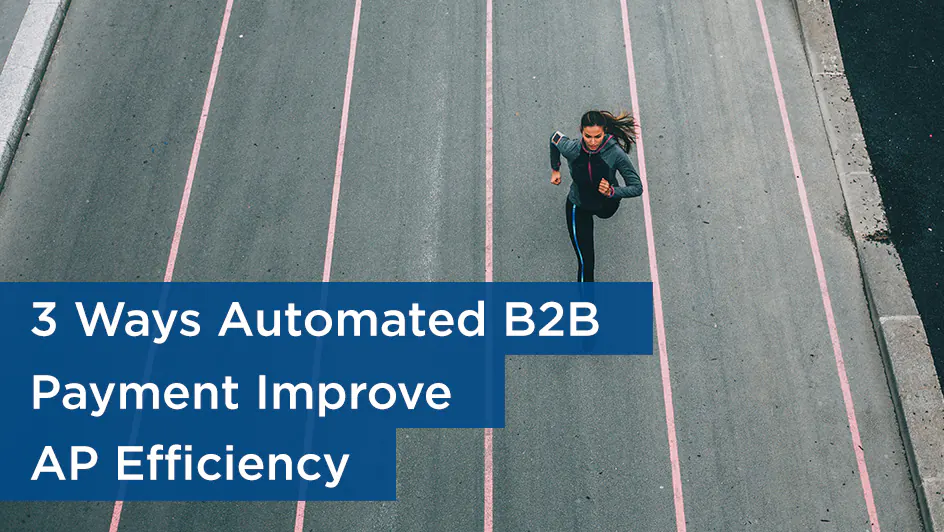Unify Fragmented B2B Payments to Smooth Supply Chain Friction
By • Published November 16, 2021 • 7 minute read
Supply chains are facing pains in a number of areas: trade policies, unpredictable supply and demand, logistical issues related to worker shortage and port congestion, and rising costs of raw materials causing tremendous inflation concerns. These supply chain vulnerabilities will have long-lasting effects that many executives believe could last until late 2022.
Corporate payments have been a persistent challenge – just ask anyone in Accounts Receivable (AR) or Accounts Payable (AP) – and today’s issues are simply adding to the already overwhelming tension companies are facing. Financial leaders understand the importance of minimizing friction within the supply chain, and comprehensive, automated B2B payment solutions play a key role in achieving that goal.
Lack of Transparency Makes Forecasting a Challenge
A PrimeRevenue survey found that 60% of suppliers claimed they had to contact their customers between 1-10 times a month to inquire about payment status. More than 10% stated they had to reach out more than 10 times a month. Further, the same survey shows that 49% of respondents cited late payments as their most pressing payments challenge.
Late payments and lack of payment transparency hinder a supplier’s ability to accurately forecast and invest in their business. Not only does this hurt the supplier’s business, but it also impedes on their ability to be a strong partner to their customers. If a supplier doesn’t have reliable payment, they are less likely to be able to pivot when supply chain disruption occurs. They may not be able to provide their customers extra inventory during surges in demand or have the resources for a nimble response to port closures and labor shortages.
Manual processes are injecting even more friction within supply chains. A PYMNTS survey found that 74% of companies with revenue between $25M to $100M cited reliance on paper-based payments as a direct correlation to delayed payments. But it’s not just smaller businesses who struggle with manual payments. In fact, 24% of companies with more than $1B in revenue also rely on paper checks.
These manual, paper-based financial inefficiencies are directly correlated with the issues facing supply chains today. If companies don’t have reliable and timely cash flow, they cannot solve underlying issues that hamper the broader supply chain.
Innovation as a Result of Financial Tension
The intersection of this unusual tension and the financial impact of supply chain pains make timely payment even more imperative for businesses, no matter their size or what end of the payment cycle they fall on. Fragmented supply chains must find a path forward to a stronger, more resilient future.
The black hole of payments needs to be obliterated. AR shouldn’t have to chase down their payment or wonder whether an invoice has been approved. On the flip side, AP shouldn’t have to spend their time answering supplier inquiries, validating bank accounts, or writing paper checks. The PrimeRevenue SurePay Platform eliminates cash flow friction by consolidating all forms of payments, whether it’s early or on-time, onto one seamless platform that provides complete payment transparency.
Streamlined Payments Safeguard Against Vulnerabilities
The SurePay Platform is an easy-to-use marketplace featuring three core B2B payment solutions. The first is supply chain finance, a concept that has been around since the 1980s. It is often also referred to as reverse factoring or early payment initiatives. The other solution is dynamic discounting, when buyers offer discounts to suppliers in exchange for early payments. The third (and most recent) solution is on-time payment, designed to streamline B2B payments for buyers and suppliers while ensuring automated, on-time payments of invoices.
Historically, companies had to implement separate platforms for all of the above solutions, which further promotes a disjointed financial supply chain. For the first time, the SurePay Platform supports all forms of B2B payments on a single solution.
Today’s supply chain issues won’t be solved overnight but implementing an agile B2B payment solution to eliminate friction and vulnerability within supply chains is a great start.
Learn more about modernizing your B2B payments.









